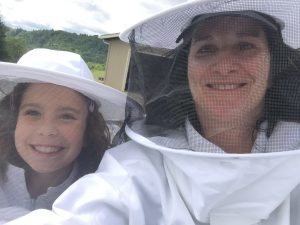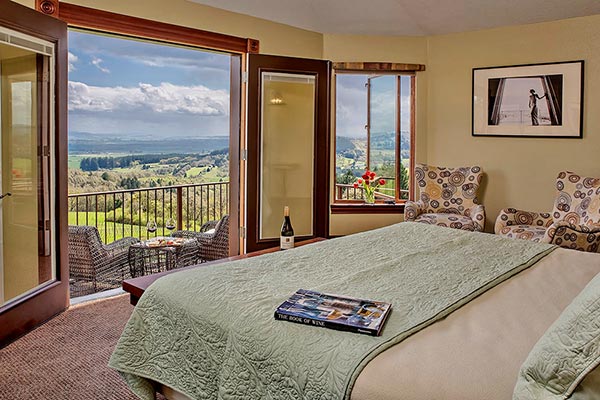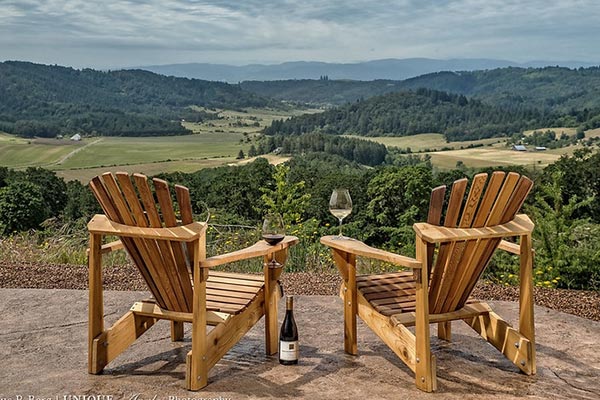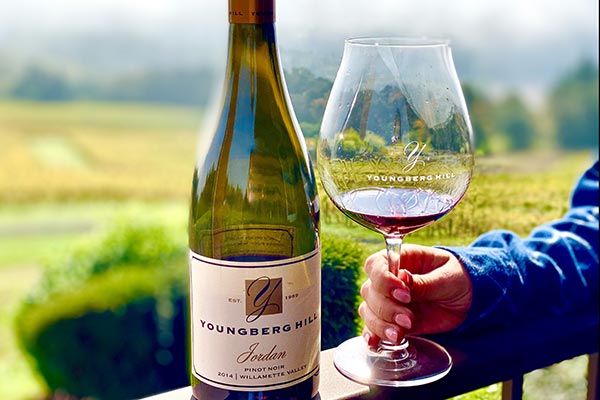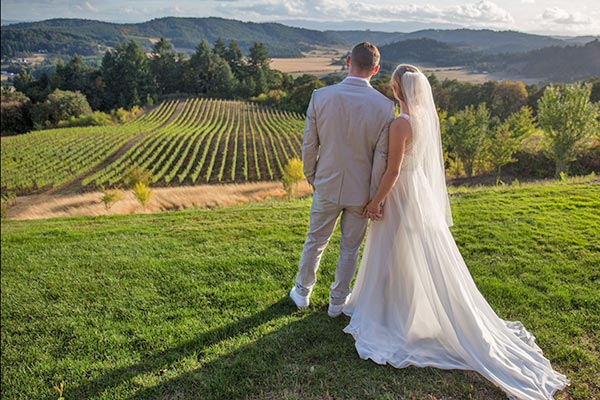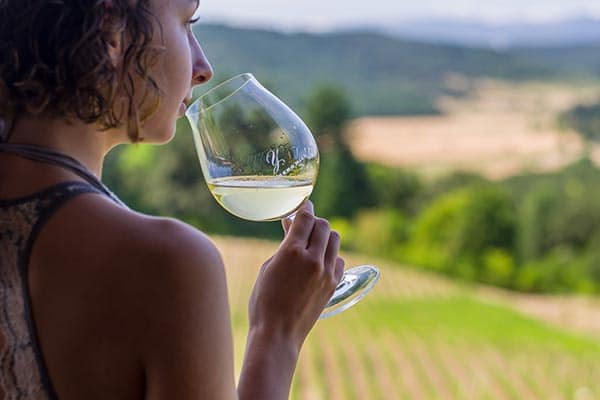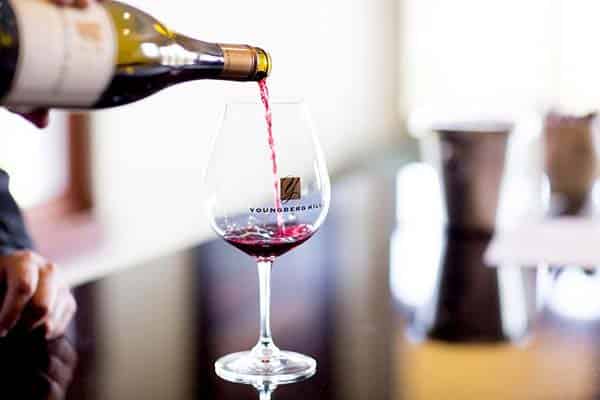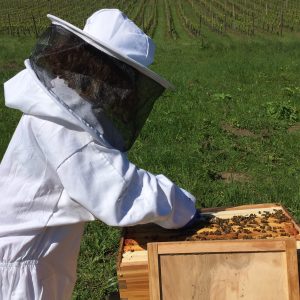 Since vineyard grapevines are self-pollinating, you may question why we’ve recently begun beekeeping up here at Youngberg Hill. Quite simply, bees play an essential role within our bio-dynamic farming practices. Becoming a beekeeper initially seemed out of my comfort zone but as the time goes by I find myself learning and enjoying bees more and more. Bees are one of the most studied creatures on the planet with a highly complex society, who are essential to the production of a majority of our fruits, nuts, and vegetables. Without these pollinators our diet would consist primarily of grains and wine.
Since vineyard grapevines are self-pollinating, you may question why we’ve recently begun beekeeping up here at Youngberg Hill. Quite simply, bees play an essential role within our bio-dynamic farming practices. Becoming a beekeeper initially seemed out of my comfort zone but as the time goes by I find myself learning and enjoying bees more and more. Bees are one of the most studied creatures on the planet with a highly complex society, who are essential to the production of a majority of our fruits, nuts, and vegetables. Without these pollinators our diet would consist primarily of grains and wine.
I first became intrigued in beekeeping years ago but didn’t have the time to devote to it. More recently, I came across a Facebook post about the Flow Hive. They made beekeeping look easier than the traditional method so I asked my girls if any of them would be interested in doing it with me.
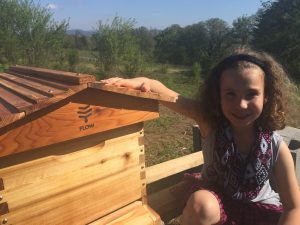
I was met with pure enthusiasm from my youngest, Aspen who is nine. With an adventurous twinkle in both our eyes we began our bee journey as partners. I quickly learned that just because the Flow Hive offered some time savings when harvesting the honey we still needed to learn a lot about how to take care of the bees.
Our first step to becoming beekeepers was to attend a beekeeping class put on by the Willamette Valley Beekeepers Association. They presented a basic level of information on how bees work together, communicate, propagate, and survive. I was both intrigued and a bit overwhelmed at the information we were learning. One thing that did become evident is the need for bees in order to maintain a healthy environment. In a way, I felt like beekeeping would be one way that Aspen and I could work together to help save the world. To be honest, for me the altruistic part of this venture is second to the enjoyment I experience spending time with Aspen. As for Aspen, she plans on speaking and giving presentations about bees to guests at Youngberg Hill and at school.
What about Bee Stings?
In our 13 years no one has ever been stung by a honeybee at Youngberg Hill. We have received a number of stings from the wasps that live in all area vineyards and farms. Wasps, like honeybees are beneficial in pollinating plants, but they aren’t our friends. Wasps are natural enemies of honeybees, so to be successful beekeepers we now need to take wasp management to a higher level. When honeybees sting you they die so they really do want to avoid it at all cost. They really don’t want to sting you!
Wasps sting and continue to live. For the most part if you leave bees alone they won’t bother you. You can work around them in the garden without fear. All they want to do is collect nectar and pollen.
Honey Goals
Our goal is to have successful hives to produce both honey and honeycomb that we can use at the Inn and sell in our gift shop. Aspen is the CEO of the project and along with learning about beekeeping, she will be learning how to manage a business including keeping records, buying supplies, marketing, managing the hives and of course sampling the product to make sure it is the highest quality.
We are excited about this new experience, and will be sure to update our progress and knowledge with you as we move forward with our bee journey.
